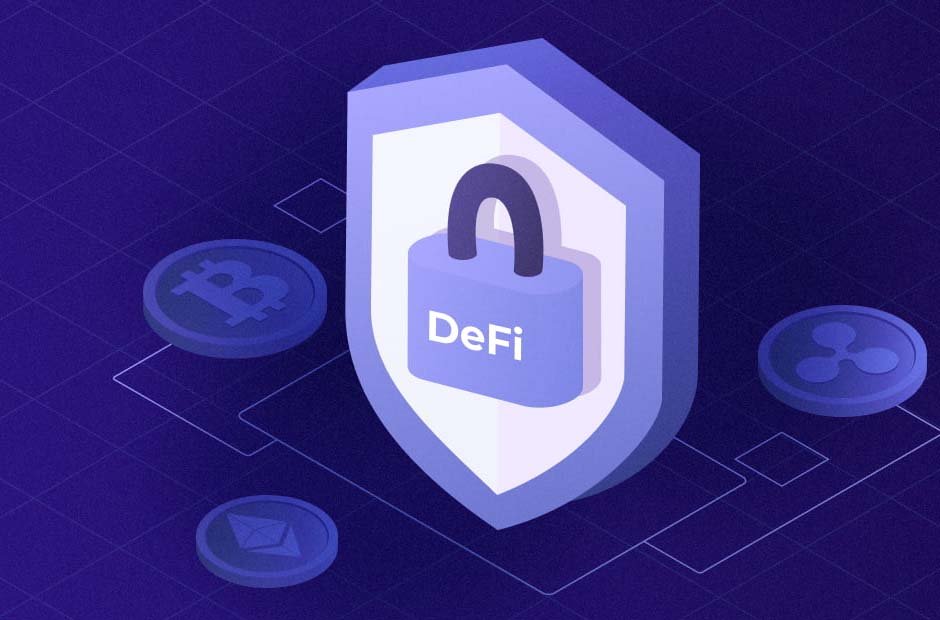Table of Contents
Introduction
Decentralized Finance (DeFi) has emerged as a revolutionary force in the financial industry, offering a borderless and permissionless alternative to traditional finance. However, with its rapid growth and increasing popularity comes the pressing need for robust security measures. In this article, we delve into the intricacies of DeFi security and explore effective strategies to safeguard your assets in this decentralized landscape. This trusted platform has been gaining traction as an innovative solution for trading digital assets securely, offering a range of features and resources conveniently accessible from its home page.
Understanding DeFi Security
DeFi platforms operate on blockchain technology, utilizing smart contracts to automate financial processes without the need for intermediaries. While this offers numerous benefits, including increased accessibility and transparency, it also introduces unique security challenges. Unlike centralized finance, where centralized entities often oversee security measures, DeFi relies on decentralized protocols that are susceptible to vulnerabilities.
Common Security Risks in DeFi
- Smart Contract Vulnerabilities: Smart contracts, the backbone of DeFi platforms, are prone to coding errors and vulnerabilities. These vulnerabilities can be exploited by malicious actors to siphon funds or manipulate transactions.
- Decentralized Exchange (DEX) Risks: DEXs facilitate peer-to-peer trading of digital assets without the need for intermediaries. However, they are susceptible to hacks and vulnerabilities, leading to potential loss of funds for users.
- Custodial Risks: While DeFi prides itself on eliminating the need for intermediaries, some platforms still employ custodial services to manage user funds. Entrusting assets to custodial wallets exposes them to the risk of theft or mismanagement.
Best Practices for DeFi Security
- Use of Hardware Wallets and Secure Storage Solutions: Hardware wallets offer an additional layer of security by storing private keys offline, making them less susceptible to hacking attempts. Utilizing hardware wallets or secure storage solutions can help mitigate the risk of unauthorized access to your assets.
- Secure Passwords and Two-Factor Authentication (2FA): Strong, unique passwords are essential for protecting your accounts from unauthorized access. Implementing two-factor authentication (2FA) adds an extra layer of security by requiring a secondary verification method, such as a one-time code sent to your mobile device.
- Thorough Research on DeFi Projects: Before investing or participating in any DeFi project, conduct thorough research to assess its credibility and security measures. Verify the project’s smart contracts, audit reports, and team credentials to mitigate the risk of falling victim to fraudulent schemes.
DeFi Security Audits
Security audits play a crucial role in identifying and addressing vulnerabilities in DeFi protocols. These audits are conducted by independent third-party firms specializing in blockchain security to assess the integrity and robustness of smart contracts and underlying infrastructure. DeFi projects need to undergo comprehensive security audits to instill trust and confidence among users.
Regulatory and Compliance Considerations
While DeFi operates in a decentralized and permissionless manner, regulatory scrutiny is increasing as the industry matures. Regulatory compliance not only ensures legal adherence but also enhances security measures by imposing standards and guidelines for DeFi platforms. As regulatory frameworks evolve, DeFi projects need to stay abreast of compliance requirements to mitigate legal and security risks.
Future Trends in DeFi Security
Looking ahead, the landscape of DeFi security is poised to undergo significant advancements driven by technological innovation and regulatory developments. Emerging technologies such as decentralized identity solutions, zero-knowledge proofs, and multi-party computation hold promise for enhancing privacy and security in DeFi transactions. Additionally, increased collaboration between industry stakeholders and regulators is likely to result in standardized security protocols and best practices for DeFi platforms.
Conclusion
In conclusion, prioritizing security is paramount in navigating the decentralized finance landscape. By understanding common security risks, implementing best practices, undergoing thorough security audits, and staying abreast of regulatory developments, investors and users can safeguard their assets and participate in the transformative potential of DeFi with confidence.










